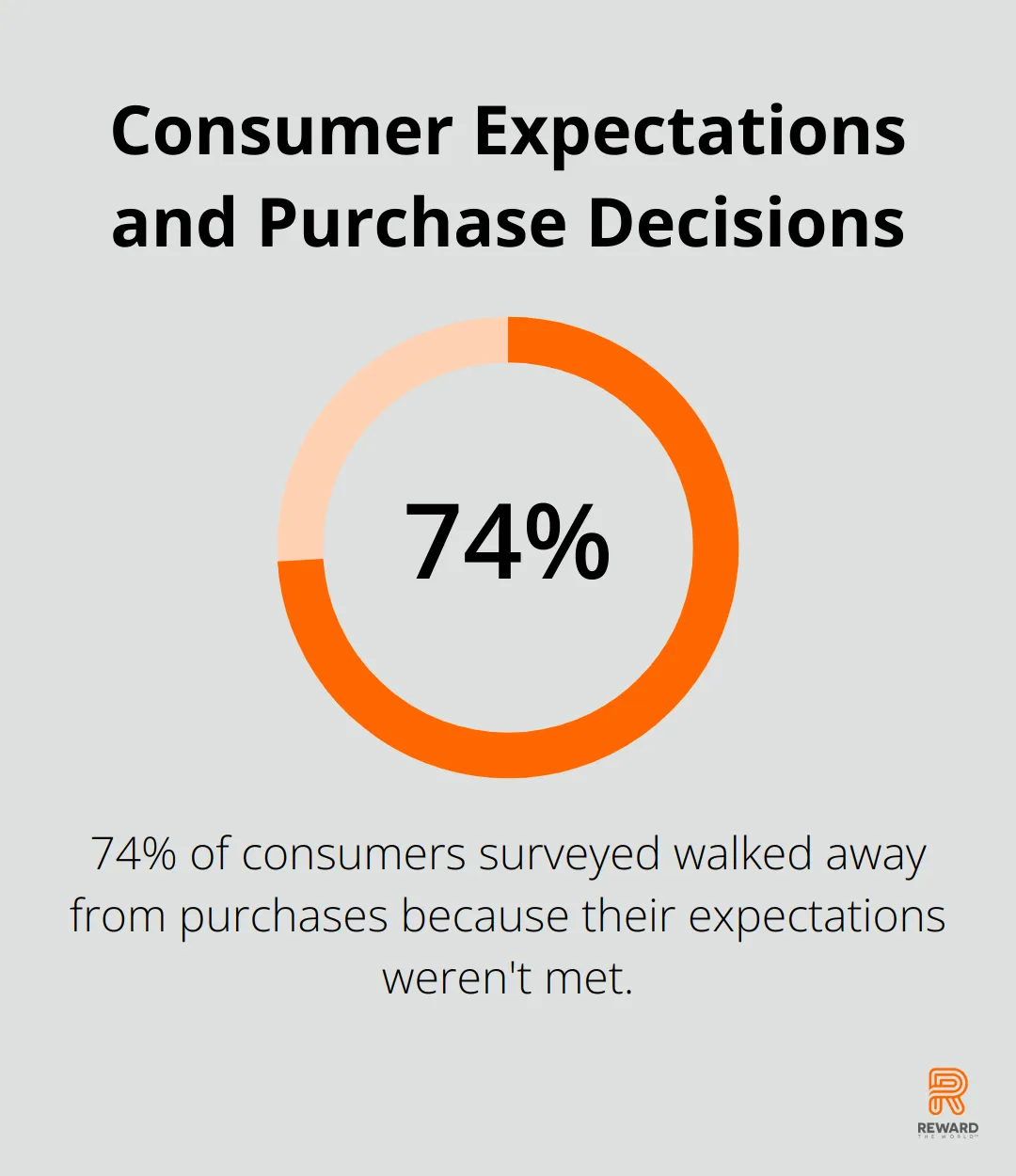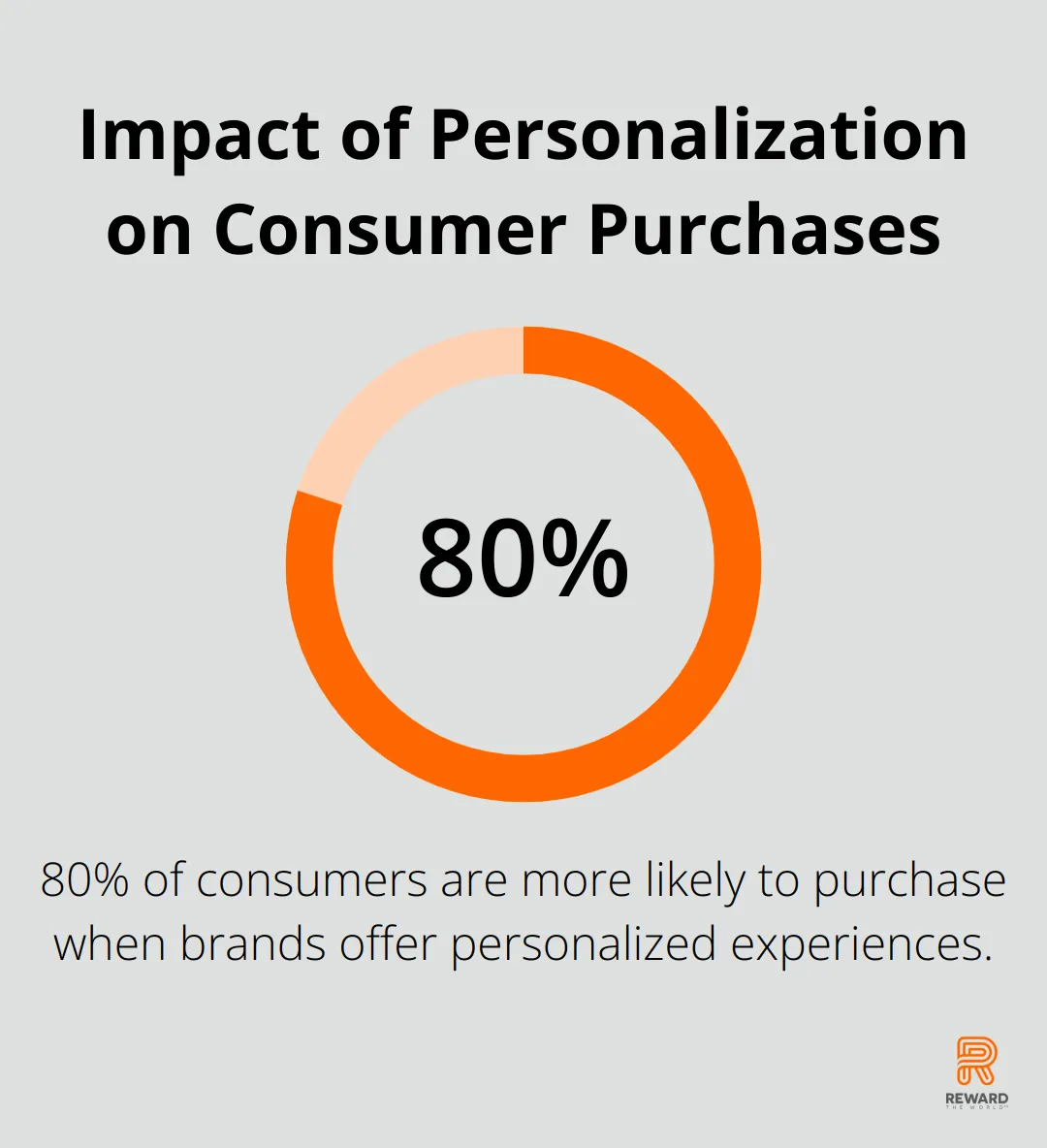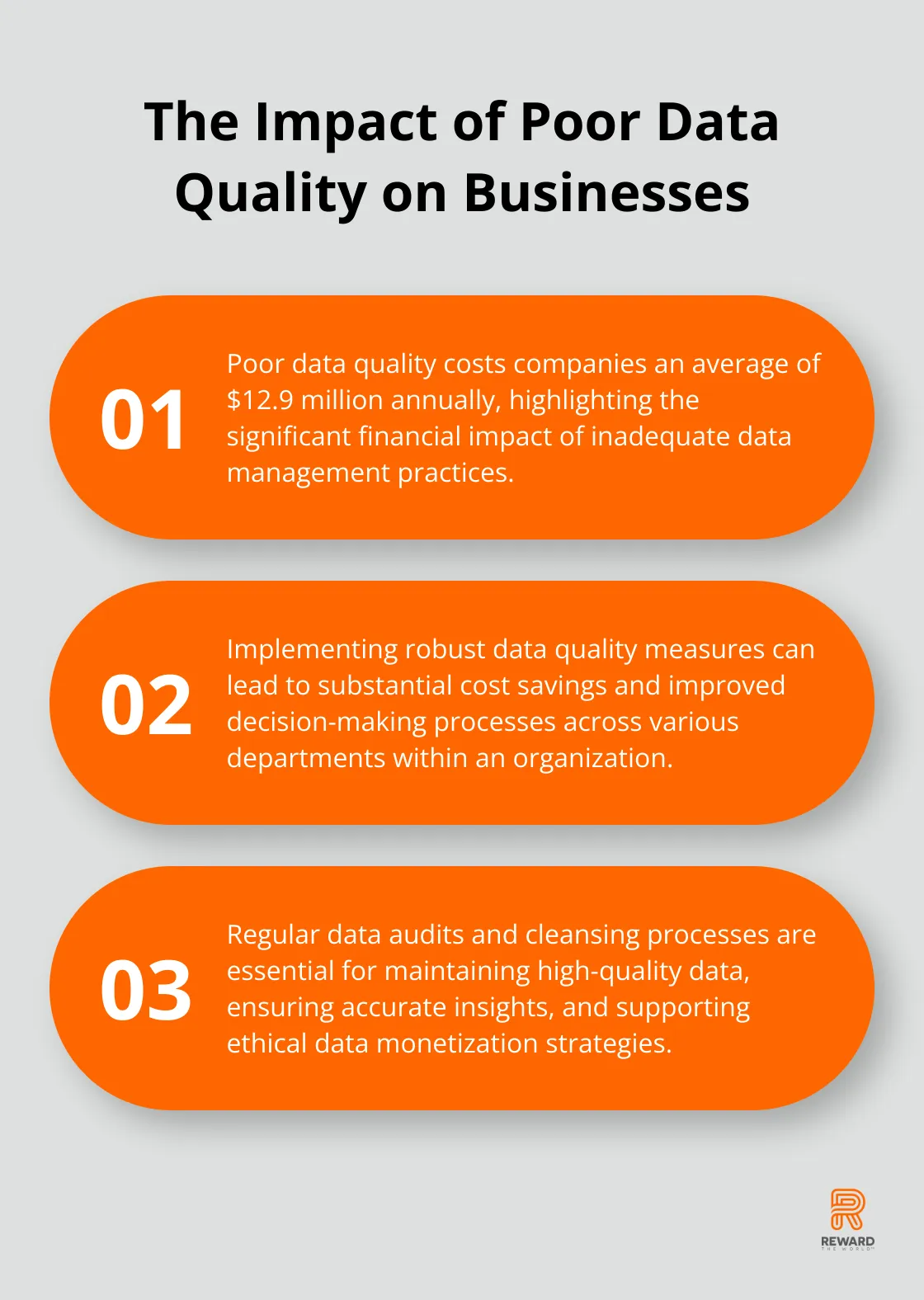
Data monetization in loyalty programs is a powerful tool for businesses, but it comes with significant ethical responsibilities. At Reward the World, we believe that ethical practices are not just a necessity, but a competitive advantage in today’s data-driven landscape.
This guide explores strategies for ethically monetizing customer data while enhancing loyalty program value. We’ll show you how to balance profit with privacy, creating win-win scenarios for both businesses and customers.
What Is Ethical Data Monetization?
The Essence of Responsible Data Use
Data monetization in loyalty programs transforms customer information into revenue. However, it’s not just about profit; it’s about doing it right. Ethical data practices can revolutionize loyalty programs, as we’ve observed at Reward the World. Our platform (serving 250 million users across 15 languages) prioritizes responsible data use.
Transparency: The Foundation of Ethics
Ethical data monetization begins with transparency. Companies must clearly communicate what data they collect and how they use it. An Accenture study revealed that 74% of consumers surveyed walked away from purchases simply because they felt their expectations weren’t met, highlighting the importance of transparency and meeting consumer expectations.

Data collection should have a clear purpose. Explicit consent is non-negotiable. The era of hiding data collection in fine print has ended.
The Business Advantage of Ethical Practices
Ethical data practices benefit both customers and businesses. Companies prioritizing data ethics experience higher customer trust and loyalty. A Deloitte report found that 79% of consumers are more likely to engage with brands that use their data to improve experiences.
Moreover, ethical practices help avoid costly fines and reputation damage. IBM reported that the global average cost of a data breach decreased by 9% over last year, driven by faster identification and containment.
Customer Value Creation
The cornerstone of ethical data monetization is customer value creation. Businesses should use data to offer personalized rewards and experiences. Starbucks exemplifies this approach with their rewards program, which drives 41% of their U.S. sales through tailored promotions based on purchase history.
Reward the World’s platform embodies this principle, allowing businesses to offer instant, personalized rewards across 60 million options. This level of customization stems from ethical, consent-based data use.
Balancing Profit and Privacy
Ethical data monetization isn’t about exploiting customer information. It’s about using data to enhance experiences, foster loyalty, and drive mutual value. When executed properly, it creates a win-win scenario for businesses and customers.
As we move forward, let’s explore key strategies that can help businesses implement ethical data monetization in their loyalty programs effectively.
How Businesses Can Ethically Monetize Loyalty Program Data
Implement Clear and Accessible Data Policies
Businesses must craft transparent data collection and usage policies. These policies should be easily accessible and understandable. A study by the Pew Research Center reveals that 71% of Americans are concerned about government use of people’s data. Companies can address these concerns directly by explaining what data they collect, why they collect it, and how they use it.
For example, companies should create a dedicated section in their loyalty program app or website that outlines data practices in simple language. The use of infographics or short videos can explain complex concepts effectively. This approach builds trust and helps customers make informed decisions about their data.
Adopt a Strict Opt-In Approach
Companies should implement a robust opt-in system for data sharing. This means obtaining explicit consent from customers before collecting or using their data for any purpose beyond the basic functionality of the loyalty program.
A Salesforce study found that 92% of analytics and IT decision-makers say trustworthy data is needed more than ever. Companies should offer granular options for data sharing, allowing customers to choose which types of data they’re comfortable sharing and for what purposes.
Deliver Hyper-Personalized Rewards
Companies should use the data they collect ethically to create highly personalized rewards. Research by Epsilon indicates that 80% of consumers are more likely to make a purchase when brands offer personalized experiences.

Businesses can analyze purchase history, browsing behavior, and stated preferences to tailor rewards that truly resonate with each customer. For instance, if a customer frequently purchases eco-friendly products, companies can offer rewards from sustainable brands or donations to environmental causes.
Form Ethical Partnerships
When partnering with third-party advertisers or other businesses, companies should prioritize those that align with their ethical data practices. They should conduct thorough due diligence on potential partners to ensure they adhere to similar data protection standards.
Companies must be transparent with their customers about these partnerships. They should explain how customer data might be shared and used, and always provide an opt-out option. A survey by KPMG shows that 75% of consumers are uncomfortable with their data being sold to third parties, highlighting the importance of transparency and consent in these partnerships.
Transform Data into Actionable Insights
Companies should use the data they collect to generate valuable insights for business decision-making. This not only improves their offerings but also demonstrates to customers that their data is being used to enhance their experience.
For example, businesses can analyze purchasing patterns to optimize inventory management, reducing waste and potentially lowering costs. They can use customer feedback data to improve products or services. A study by McKinsey found that companies that leverage customer behavioral insights outperform peers by 85% in sales growth and more than 25% in gross margin.
These strategies allow businesses to ethically monetize their loyalty program data while building stronger, more trusting relationships with their customers. The next chapter will explore how companies can effectively implement these ethical data monetization strategies in their loyalty programs.
How to Implement Ethical Data Monetization
Conduct a Comprehensive Data Audit
Start your ethical data monetization journey with a thorough data audit. This process involves cataloging all collected data, storage methods, and current usage. A study found that poor data quality costs companies an average of $12.9 million annually, underscoring the importance of this step.

During your audit, identify and eliminate unnecessary data collection practices. If you collect data that doesn’t improve customer experience or business operations, stop this collection. This aligns with ethical practices and reduces data management costs.
Create a Robust Data Strategy
Develop a clear data strategy that outlines data collection, usage, and protection methods. This strategy should align with your business goals while prioritizing customer privacy and trust.
Set specific, measurable goals for data monetization. For example, you might try to increase personalized offer acceptance rates by 20% through better data utilization. Include a data governance framework that defines roles and responsibilities for data management, establishes data quality standards, and outlines processes for data access and sharing.
Invest in Staff Training
Ethical data practices start with your team. Invest in comprehensive training programs to ensure all staff members understand data ethics importance and know how to handle customer data responsibly.
Address the issue of low business intelligence and analytics maturity by providing ongoing training on data analysis techniques, privacy regulations, and ethical considerations in data use.
Consider creating a dedicated team or appointing a chief data ethics officer to oversee ethical data practices. This demonstrates your commitment to responsible data use and provides a clear point of contact for data-related issues.
Leverage Advanced Technology
Implement robust technology solutions to manage and protect customer data. Use encryption for data storage and transfer, implement multi-factor authentication for data access, and use AI-powered anomaly detection systems to identify potential data breaches.
Blockchain technology can also play a role in ethical data monetization. Its inherent transparency and immutability can help build trust with customers. You could use blockchain to create an immutable record of customer consent for data usage.
Regularly Review and Update Your Policies
The data landscape constantly evolves, and your policies should evolve with it. Set up a regular schedule to review and update your data policies (at least annually, but more frequently if significant changes occur in regulations or technology).
Involve your customers in this process. Conduct regular surveys to understand their preferences and concerns regarding data usage. Use this feedback to refine your practices and build trust.
Ethical data monetization practices should ensure fair and responsible data usage and be compliant to avoid legal repercussions.
Final Thoughts
Ethical data monetization in loyalty programs creates value for businesses and customers alike. Companies that prioritize transparency, opt-in approaches, and personalized rewards will build trust and enhance customer loyalty. These practices lead to more effective marketing, improved product development, and increased revenue while protecting businesses from reputational damage and fines.
Reward the World understands the importance of ethical data practices in loyalty programs. Our platform serves millions of users across multiple languages, offering instant rewards with numerous options. We’ve built our success on a foundation of trust, transparency, and value creation for both businesses and customers.
Companies should embrace ethical data monetization strategies in their loyalty programs. This includes auditing current practices, developing clear data strategies, investing in staff training, and leveraging advanced technology. Ethical data monetization is an ongoing commitment to responsible data use that will help businesses build loyalty programs that truly resonate with customers.
